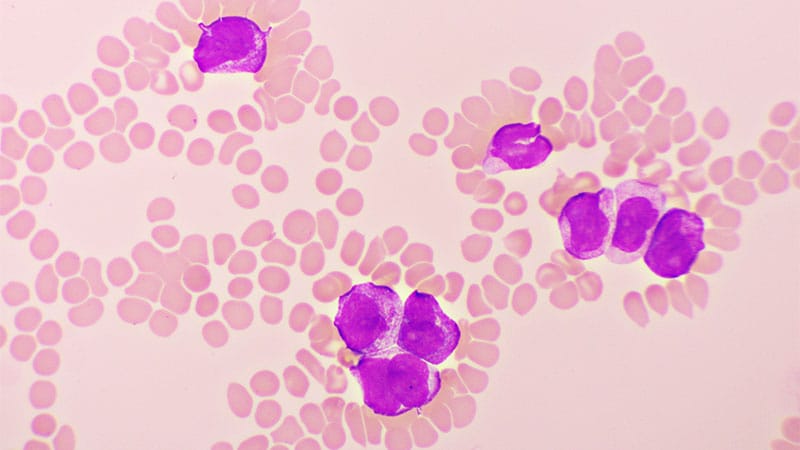NICE has approved gemtuzumab ozogamicin, with daunorubicin and cytarabine, as an option for untreated de novo CD33-positive acute myeloid leukaemia (AML), except acute promyelocytic leukaemia, in people 15 years and over. The treatment is recommended for induction therapy only where cytogenetic testing has confirmed favourable, intermediate, or unknown cytogenetics, or when cytogenetic test results are not yet available. Consolidation therapy is recommended only when cytogenetic testing confirms that the disease has favourable, intermediate, or unknown cytogenetics (because the test was unsuccessful).
The NICE decision is based on data from the open-label, phase 3, randomised controlled ALFA-0701 trial which included 271 patients (aged 50-70 years) at 26 haematology centres in France, and compared gemtuzumab ozogamicin plus daunorubicin and cytarabine with daunorubicin and cytarabine alone.
Gemtuzumab ozogamicin plus daunorubicin and cytarabine was associated with increased median event (induction failure, relapse, or death)-free survival compared with daunorubicin and cytarabine alone (9.5 months vs 17.3 months; HR 0.56; 95% CI 0.42-0.76; P=0.0002). Median relapse-free survival increased from 11.4 months to 28 months (HR 0.53; 95% CI 0.36-0.76; P=0.0006).
Triple therapy increased median event-free survival from 12.2 months to 22.5 months (HR 0.49; 95% CI 0.33-0.72; P=0.0003) in those whose disease had favourable or intermediate cytogenetics. There was no statistically significant difference in median event-free survival in patients whose disease had unfavourable cytogenetics.
There was an increase in veno-occlusive disease in patients receiving triple therapy but rates of other adverse effects were similar between the two treatment groups.
Cost-effectiveness estimates for gemtuzumab ozogamicin for patients with favourable, intermediate, or unknown cytogenetics fell within the range that NICE considers an acceptable use of NHS resources. However, because no clinical- or cost-effectiveness analysis was presented for patients with unfavourable cytogenetics, the treatment is not be recommended for this group.



